
The Enigmatic Highlands of Tana Toraja
Nestled in the highlands of South Sulawesi, Tana Toraja is a region steeped in rich cultural heritage and natural beauty. This unique destination is renowned for its intricate traditional houses called 'Tongkonan' and elaborate funeral rites that draw visitors from around the world. As you wander through the lush, green valleys and terraced rice fields, you will find yourself immersed in an ancient culture that still thrives today. Tana Toraja's funeral ceremonies are not to be missed. These events, which can last for several days, involve the entire community and are a fascinating blend of solemnity and celebration. Visitors can witness traditional dances, buffalo sacrifices, and the construction of elaborate burial sites carved into cliffs or hidden in caves. These rituals are key to understanding the Torajan belief system and their deep connection to ancestry and the afterlife. Beyond its cultural allure, Tana Toraja offers breathtaking landscapes and outdoor adventures. The region is dotted with limestone peaks, winding rivers, and dense forests, making it a paradise for hiking and trekking enthusiasts. Explore the scenic beauty of Lemo, with its cliffside tombs, or the serene beauty of the Bori' Parinding, a UNESCO World Heritage site known for its ancient megalithic stones. Whether you're a culture enthusiast or a nature lover, Tana Toraja promises an unforgettable journey into the heart of Indonesia.
Local tips in Tana Toraja
- Attend a traditional funeral ceremony if possible; it offers a deep insight into local customs and beliefs.
- Hire a local guide to explore remote villages and understand the cultural significance of various sites.
- Visit during the dry season (June to September) for better weather conditions and clearer views.
- Respect local customs and dress modestly, especially when visiting villages and sacred sites.
- Try local Torajan coffee, known for its rich flavor and distinct aroma.
- Be prepared for some challenging hikes; sturdy footwear and proper gear are essential.
The Enigmatic Highlands of Tana Toraja
Nestled in the highlands of South Sulawesi, Tana Toraja is a region steeped in rich cultural heritage and natural beauty. This unique destination is renowned for its intricate traditional houses called 'Tongkonan' and elaborate funeral rites that draw visitors from around the world. As you wander through the lush, green valleys and terraced rice fields, you will find yourself immersed in an ancient culture that still thrives today. Tana Toraja's funeral ceremonies are not to be missed. These events, which can last for several days, involve the entire community and are a fascinating blend of solemnity and celebration. Visitors can witness traditional dances, buffalo sacrifices, and the construction of elaborate burial sites carved into cliffs or hidden in caves. These rituals are key to understanding the Torajan belief system and their deep connection to ancestry and the afterlife. Beyond its cultural allure, Tana Toraja offers breathtaking landscapes and outdoor adventures. The region is dotted with limestone peaks, winding rivers, and dense forests, making it a paradise for hiking and trekking enthusiasts. Explore the scenic beauty of Lemo, with its cliffside tombs, or the serene beauty of the Bori' Parinding, a UNESCO World Heritage site known for its ancient megalithic stones. Whether you're a culture enthusiast or a nature lover, Tana Toraja promises an unforgettable journey into the heart of Indonesia.
When is the best time to go to Tana Toraja?
Iconic landmarks you can’t miss
Sulawesi
Experience the breathtaking landscapes and rich cultural heritage of Sulawesi, Indonesia's hidden gem for adventure and exploration.
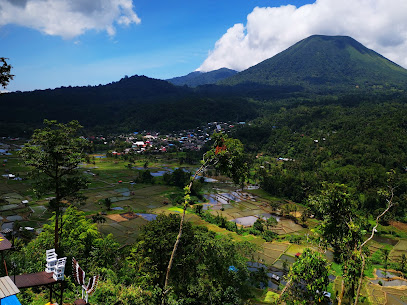
Jesus Christ Blessing Statue
Discover the serene beauty and spiritual significance of the Jesus Christ Blessing Statue in Tana Toraja, South Sulawesi.
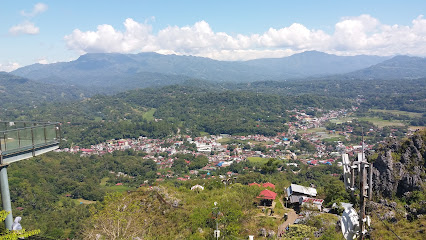
Lolai - To' Tombi, Negeri di atas awan
Explore the stunning vistas of Lolai - To' Tombi, a highland marvel in South Sulawesi, where breathtaking views meet rich Torajan culture.
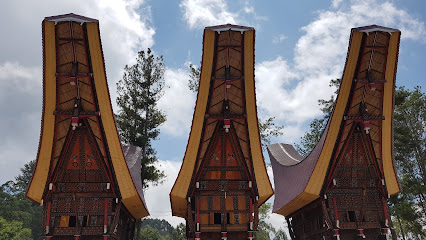
Lolai Tongkonan Lempe
Explore the iconic Tongkonan houses and breathtaking landscapes of Lolai Tongkonan Lempe, a cultural gem in North Toraja, South Sulawesi.
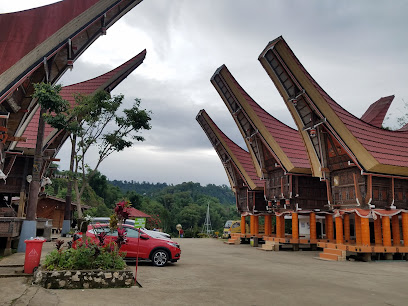
Toraja Misiliana Hotel
Discover the cultural heart of Indonesia at Toraja Misiliana Hotel, where comfort meets tradition in the breathtaking landscapes of Tana Toraja.

Objek Wisata Kalimbuang Bori
Explore Objek Wisata Kalimbuang Bori, a cultural treasure trove in North Toraja, South Sulawesi, rich in history and breathtaking landscapes.
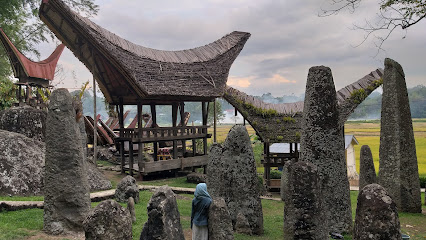
Patung Lakipadada
Discover the cultural richness of Tana Toraja at Patung Lakipadada, an iconic historical landmark with breathtaking views and intricate craftsmanship.
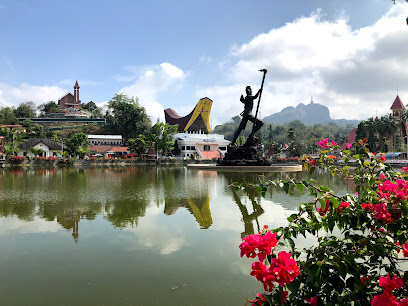
Makale, Tana Toraja, South Sulawesi, Indonesia
Discover the serene beauty and rich cultural heritage of Makale, a city park nestled in the heart of Tana Toraja, South Sulawesi, Indonesia.
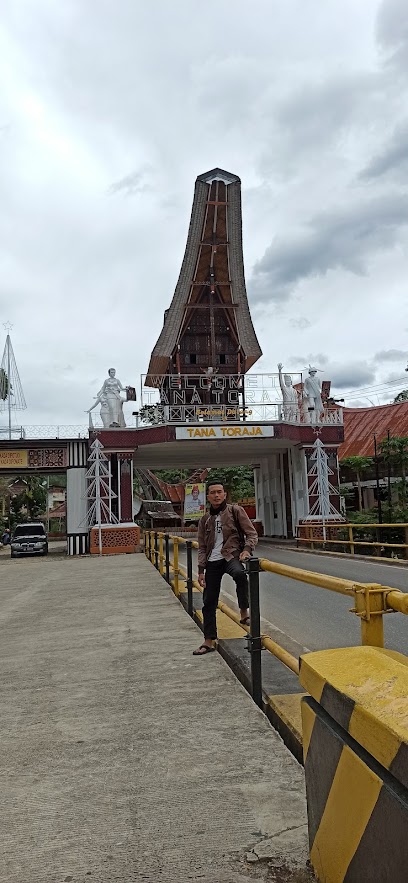
Highest peak Lolai
Explore the breathtaking views and rich culture of the Highest Peak Lolai, a must-visit destination in North Toraja, South Sulawesi, Indonesia.
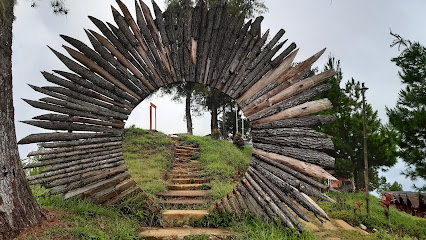
Hotel Sahid Toraja
Experience the serene beauty and rich culture of Tana Toraja at Hotel Sahid, your perfect getaway in South Sulawesi.

Kuburan Batu Lemo
Explore Kuburan Batu Lemo, a captivating historical cemetery in Tana Toraja showcasing unique burial traditions and stunning cliffside views.
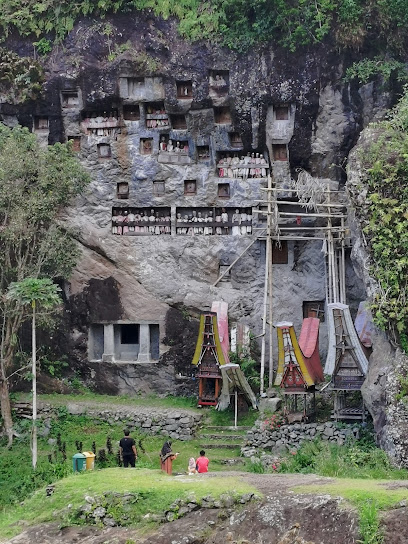
Tilanga Natural Pool
Explore the enchanting beauty of Tilanga Natural Pool, a tranquil oasis in Tana Toraja, surrounded by lush landscapes and cultural heritage.
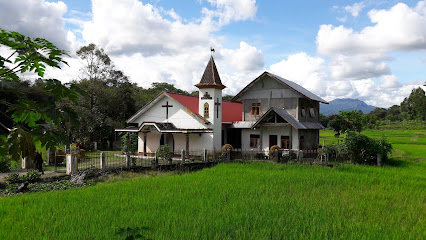
Sa'pak Bayobayo Sangalla Tana Toraja
Explore the tranquil Sa'pak Bayobayo in Tana Toraja, a fusion of spirituality and stunning scenery in South Sulawesi.
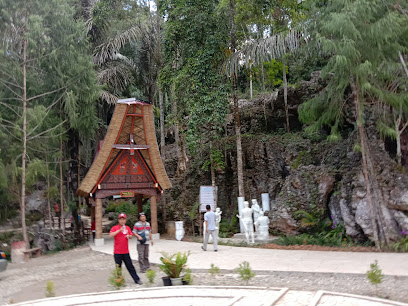
Attractions Ollon
Explore the breathtaking beauty and rich cultural heritage of Ollon, a national reserve in Tana Toraja, South Sulawesi.
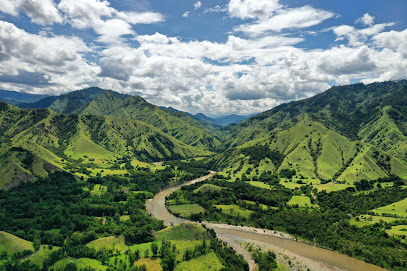
Suaya
Explore Suaya in Tana Toraja, a cultural gem with iconic burial sites and breathtaking natural landscapes that celebrate Indonesia's rich heritage.
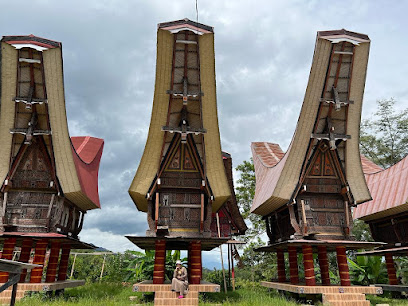
Unmissable attractions to see
Ke'te' Kesu' Toraja
Explore the cultural heart of Toraja at Ke'te' Kesu', where traditional architecture and stunning landscapes intertwine in a unique experience.
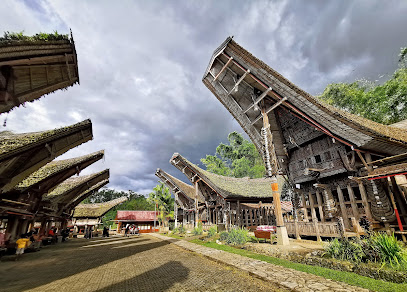
Jesus Christ Blessing Statue
Explore the stunning Jesus Christ Blessing Statue in Tana Toraja Regency, a magnificent sculpture with breathtaking views of South Sulawesi's lush landscapes.
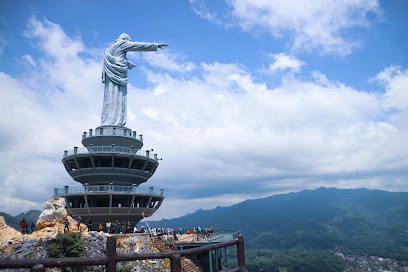
Lolai - To' Tombi, Negeri di atas awan
Experience the breathtaking beauty of Lolai - To' Tombi, a scenic park in North Toraja, South Sulawesi, renowned for its stunning mountain views and cultural heritage.
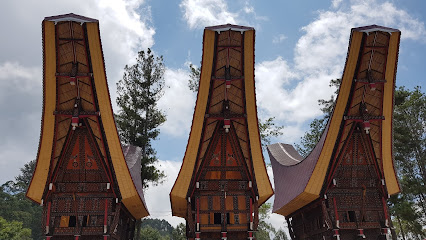
Pango-Pango Makale
Explore the serene beauty and cultural richness of Pango-Pango Makale, a stunning park in Tana Toraja Regency, South Sulawesi.
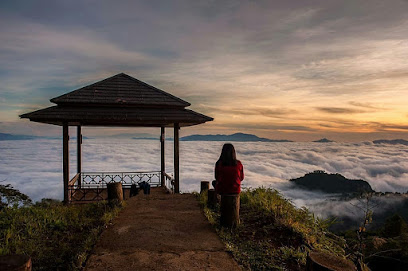
Kuburan Batu Lemo
Discover the captivating history and artistry at Kuburan Batu Lemo, a unique cemetery reflecting the rich cultural heritage of Tana Toraja in South Sulawesi.
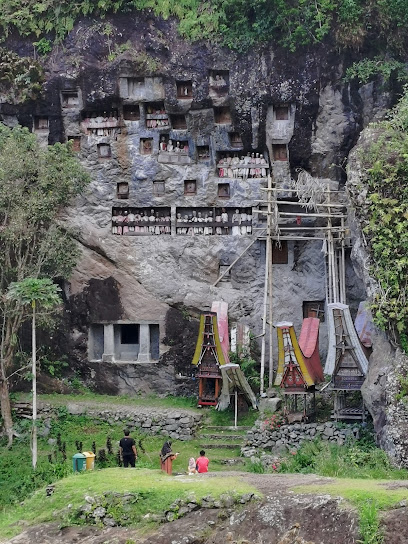
Danau Limbong
Experience the serene beauty and cultural richness at Danau Limbong, a hidden gem in North Toraja, South Sulawesi.
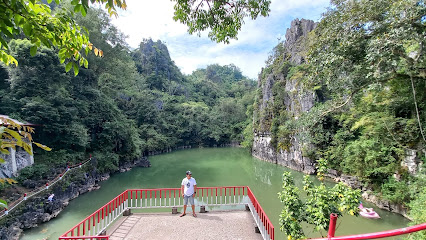
Tilanga Natural Pool
Experience the serene beauty of Tilanga Natural Pool, a hidden paradise in Tana Toraja Regency, where nature and tranquility unite for an unforgettable getaway.
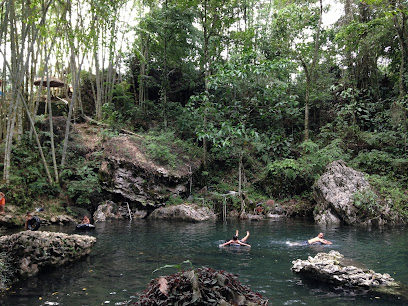
Sa'pak Bayobayo Sangalla Tana Toraja
Experience the captivating blend of nature and culture at Sa'pak Bayobayo Sangalla, a spiritual haven in Tana Toraja, South Sulawesi.
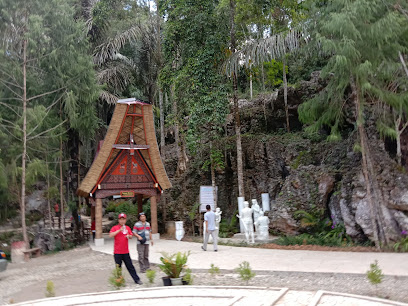
Attractions Ollon
Explore the breathtaking Ollon National Reserve in Tana Toraja, where stunning landscapes and rich biodiversity await every traveler.
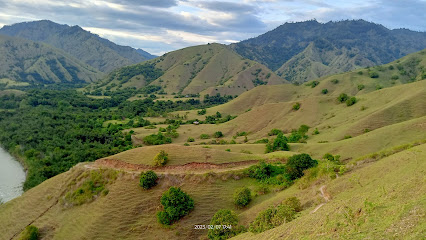
Suaya
Explore Suaya in Tana Toraja - a breathtaking blend of rich culture, stunning landscapes, and traditional heritage in South Sulawesi.
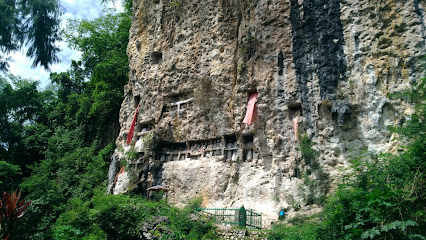
Makula Hot Spring
Experience the tranquil beauty of Makula Hot Spring in Tana Toraja, South Sulawesi, where relaxation meets rich cultural heritage.
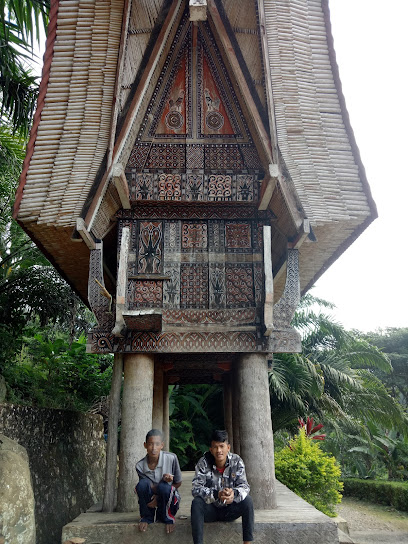
Tongkonan Karuaya
Discover the rich cultural heritage and stunning architecture of Tongkonan Karuaya, a must-visit tourist attraction in Tana Toraja, South Sulawesi.
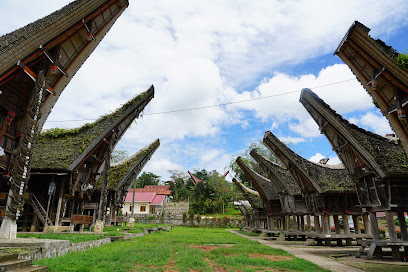
Lembah Ollon
Explore the stunning landscapes and rich cultural heritage of Lembah Ollon, a hidden gem in Tana Toraja Regency, South Sulawesi.
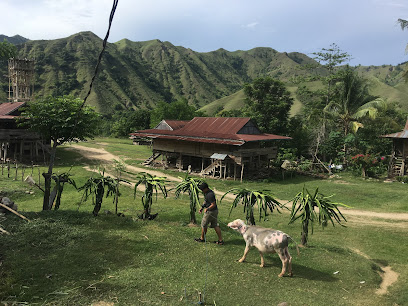
Puncak Buntu Sarira Negri Di Atas Awan
Discover the breathtaking beauty of Puncak Buntu Sarira, a serene tourist destination in South Sulawesi offering stunning views and rich cultural experiences.
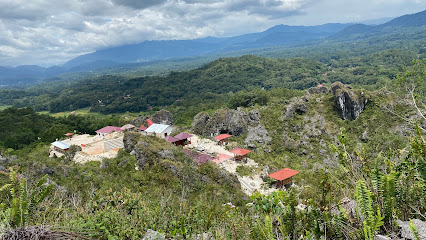
Museum Buntu Kalando
Explore the cultural treasures of Tana Toraja at Museum Buntu Kalando, where history and tradition come alive in South Sulawesi.
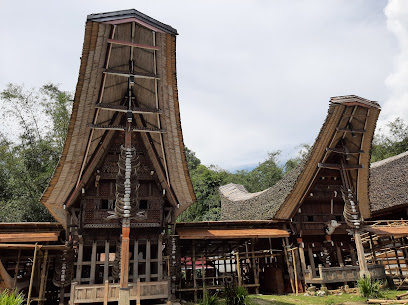
Essential places to dine
Rumah Makan Hj. Idaman
Experience authentic Indonesian cuisine at Rumah Makan Hj. Idaman in Tana Toraja – where tradition meets taste.
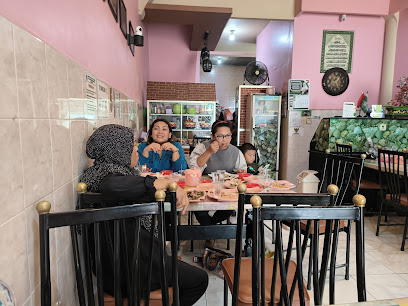
Almas Bakso Babi
Experience authentic Indonesian cuisine at Almas Bakso Babi in Tana Toraja – where every bowl tells a story.
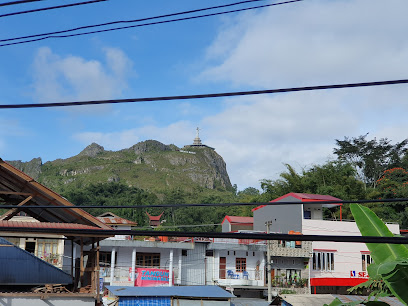
RM.Setia Kawan
Experience the best of Indonesian cuisine at RM.Setia Kawan with exquisite satay and breathtaking views in Tana Toraja Regency.
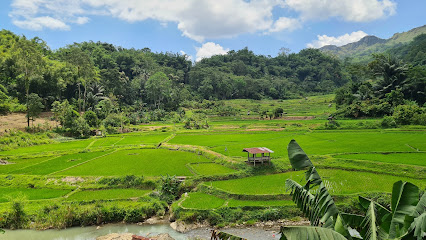
Kios Ujung Pandang (Nyuknyang/Bakso Babi) Rantelemo
Experience authentic Indonesian cuisine at Kios Ujung Pandang in Tana Toraja - a hidden gem for bakso lovers.
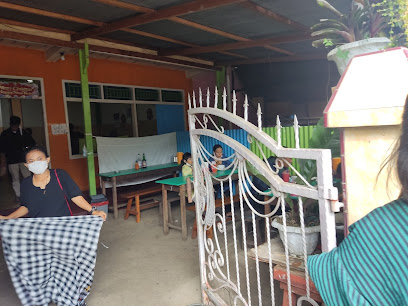
Lesehan Putri Tana Toraja
Experience authentic grilled fish in Tana Toraja at Lesehan Putri, where every bite tells a story of local culinary traditions.
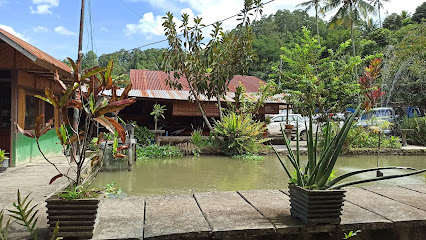
Katokkon Cafe
Experience authentic Indonesian cuisine at Katokkon Cafe in Tana Toraja - where every dish tells a story.
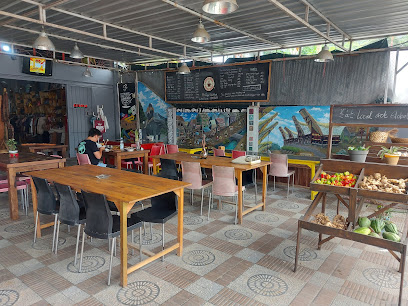
Bakso Mas Rian
Discover the rich flavors of traditional Indonesian cuisine at Bakso Mas Rian in Tana Toraja - where every bite tells a story.
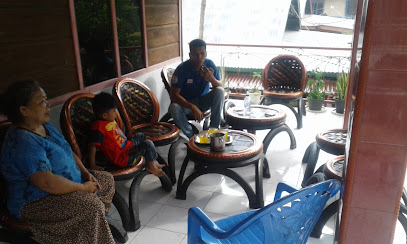
Nasi Uduk Jakarta
Discover the authentic taste of Sundanese cuisine at Nasi Uduk Jakarta in Tana Toraja - where tradition meets flavor.
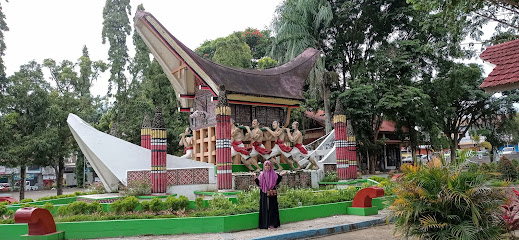
Rumah Makan RESTU
Experience authentic Chinese flavors in Tana Toraja's charming diner, Rumah Makan RESTU – where every dish tells a story.
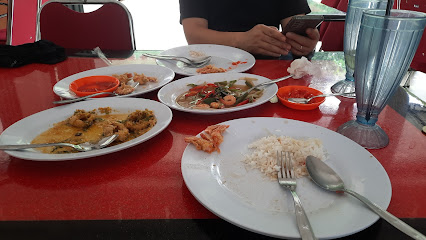
Sate Ayam Pinggir Kolam Makale
Discover authentic Indonesian flavors at Sate Ayam Pinggir Kolam Makale - an enchanting satay restaurant in Tana Toraja's serene surroundings.
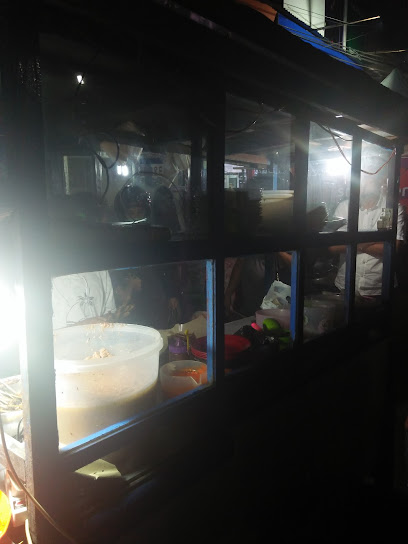
Warung Mayar
Experience authentic Indonesian cuisine at Warung Mayar – a delightful bakso restaurant in Tana Toraja.
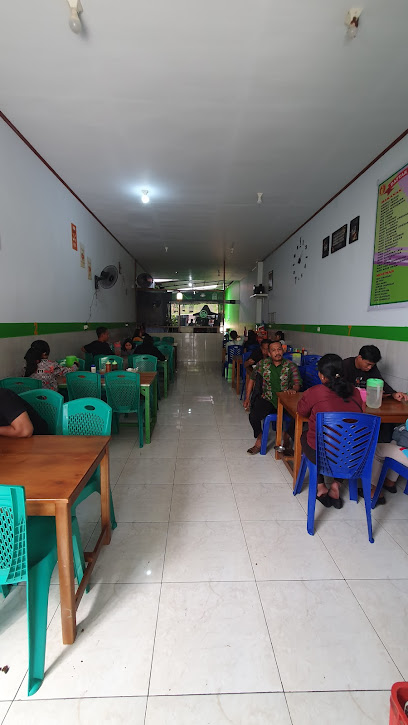
RM. HIKMAH ARDELZA
Experience authentic Padang cuisine at RM. HIKMAH ARDELZA in Tana Toraja – a culinary gem blending tradition with flavor.
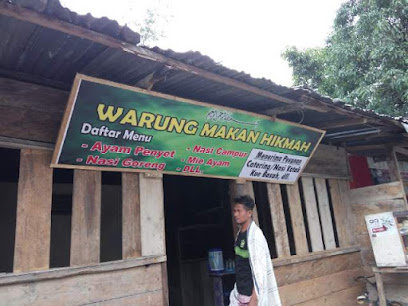
Warung Makan HARAPAN SARTON
Experience authentic Indonesian flavors at Warung Makan HARAPAN SARTON in Tana Toraja - a culinary journey through South Sulawesi's rich heritage.
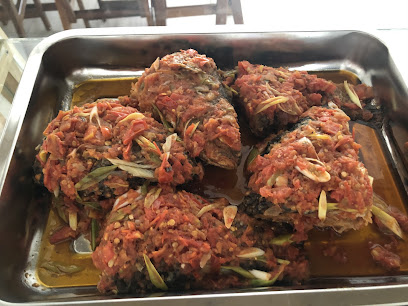
Cafe Nora Norva
Experience authentic Indonesian cuisine at Cafe Nora Norva in North Toraja - where every dish tells a story.
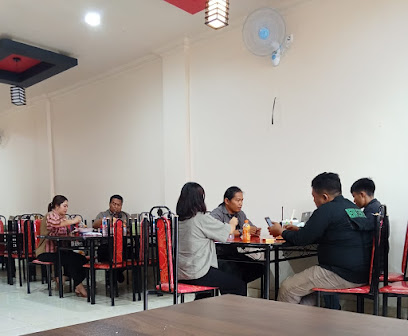
Mamak Buak Sekpon
Experience authentic Indonesian flavors at Mamak Buak Sekpon in Tana Toraja - your go-to destination for delicious bakso and local hospitality.
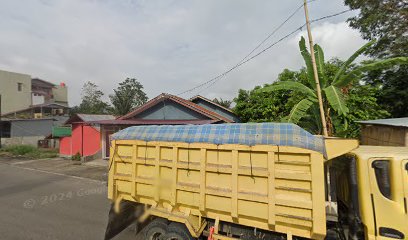
Markets, malls and hidden boutiques
Penai clothing & sablon
Discover the unique textiles and vibrant culture at Penai Clothing & Sablon in Tana Toraja Regency, South Sulawesi.
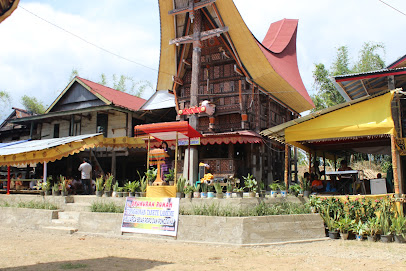
TANABULAAN BOUTIQUE
Discover the charm of Tanabuluan Boutique in Rembon, where local craftsmanship meets modern design in a stunning South Sulawesi setting.

Kios Mama Aldi
Discover the rich flavors of Tana Toraja at Kios Mama Aldi, where authentic cuisine meets warm Torajan hospitality in a charming kiosk setting.
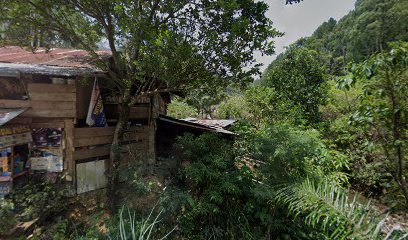
Harun Collection
Explore the Harun Collection in Tana Toraja, where modern fashion meets traditional craftsmanship in a charming boutique setting.
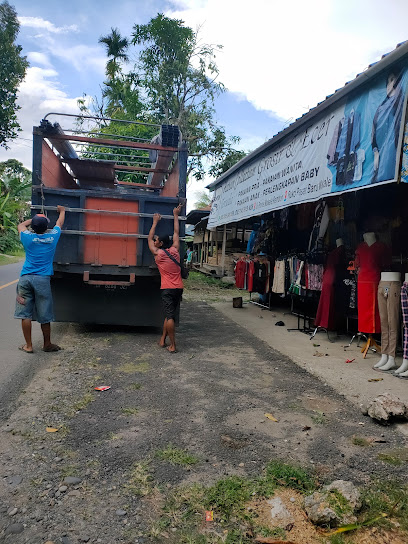
Todi' Shop
Explore Todi' Shop, a vibrant shopping mall in Tana Toraja, South Sulawesi, offering unique local crafts and enriching cultural experiences.
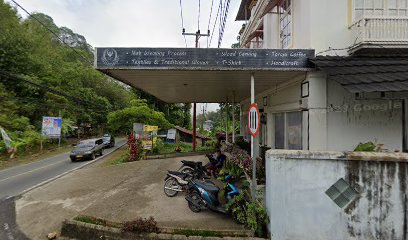
Noah manik-manik / Noah etnik Toraja
Explore Noah Manik-Manik in Tana Toraja for unique gifts and authentic Torajan crafts, celebrating the rich cultural heritage of South Sulawesi.
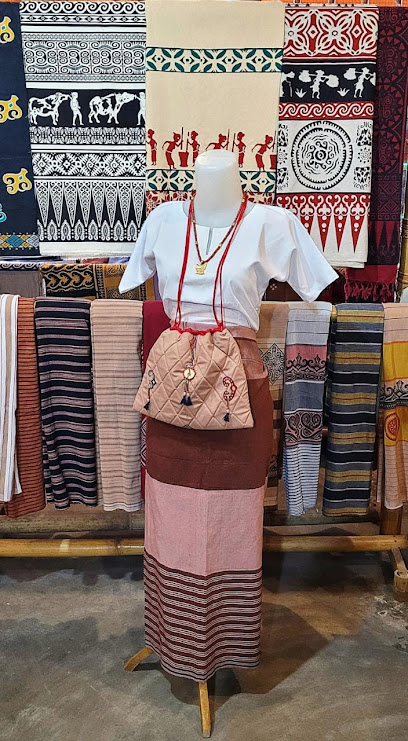
Kios Jevon
Explore the rich culture of Tana Toraja at Kios Jevon, your go-to destination for authentic local crafts and souvenirs.
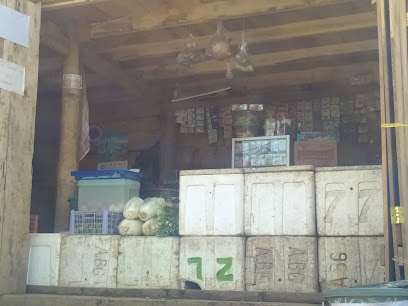
toko Yolan
Explore the unique shopping experiences at Toko Yolan in Tana Toraja, where local heritage and craftsmanship come alive.
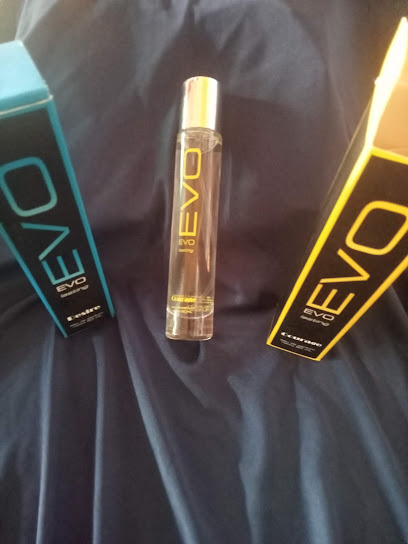
Toko Ani
Discover the charm of Tana Toraja at Toko Ani, where local craftsmanship meets cultural heritage in a delightful shopping experience.
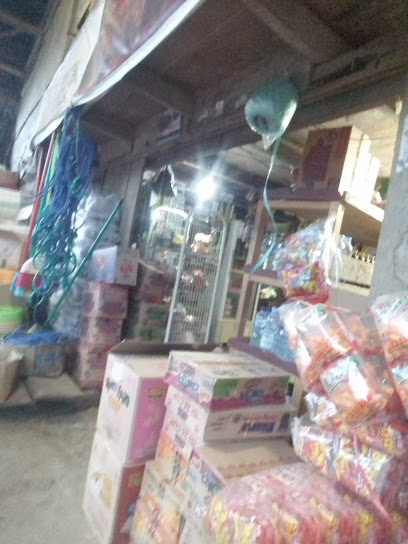
Toko Erlis 3
Explore Toko Erlis 3 in Tana Toraja for authentic local goods and a glimpse into the rich culture of South Sulawesi.

membuat vlog
Explore the authentic craftsmanship of Tana Toraja at this vibrant craft store, where tradition meets creativity in every handmade piece.
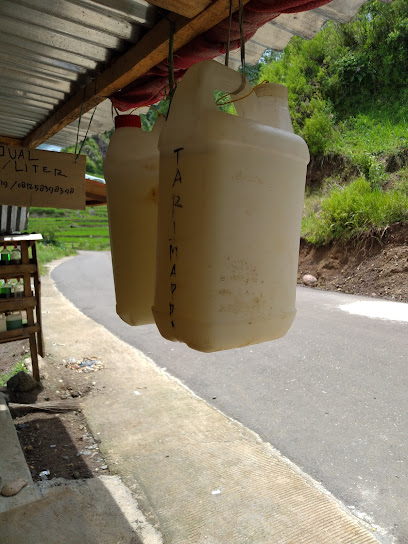
Toko Kezia (Bigland)
Explore Toko Kezia in Tana Toraja for unique, handcrafted furniture that embodies the rich cultural heritage of South Sulawesi.
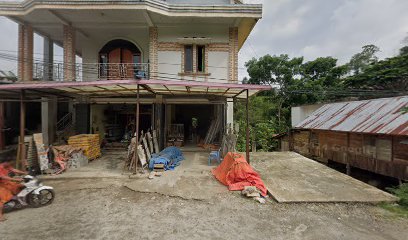
DA STORE
Discover the essence of Tana Toraja at DA STORE, where local crafts and culture converge in a unique shopping experience.
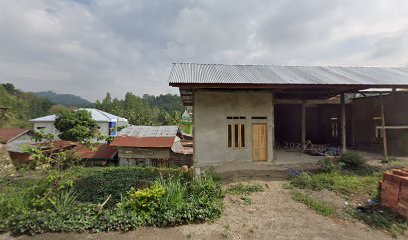
Rumah Kenzo
Discover the vibrant heritage of Tana Toraja at Rumah Kenzo, where local craftsmanship meets cultural richness in every handcrafted piece.
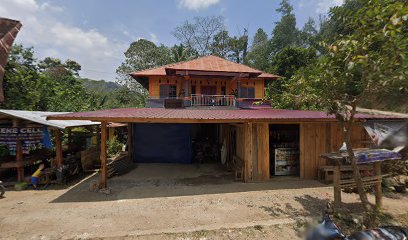
Baju bodo tana toraja
Discover the vibrant textile culture of Tana Toraja at Baju Bodo, where traditional craftsmanship meets modern elegance.
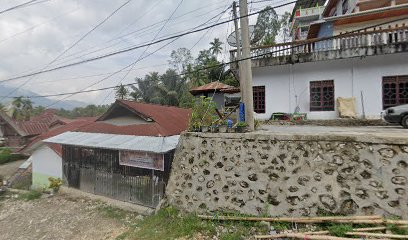
Essential bars & hidden hideouts
W.M. Kalijodoh
Experience the vibrant atmosphere of W.M. Kalijodoh, a bar in Tana Toraja offering refreshing drinks and a taste of local culture.
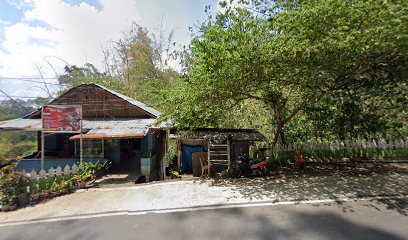
Warung Ballo Aji bongi
Experience the vibrant nightlife at Warung Ballo Aji Bongi, a cultural hub in Tana Toraja offering local drinks and a lively atmosphere.
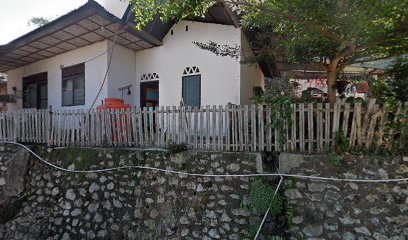
Rante Kata
Discover the vibrant atmosphere of Rante Kata, a local bar in Tana Toraja where cultures blend and stories come alive over drinks.
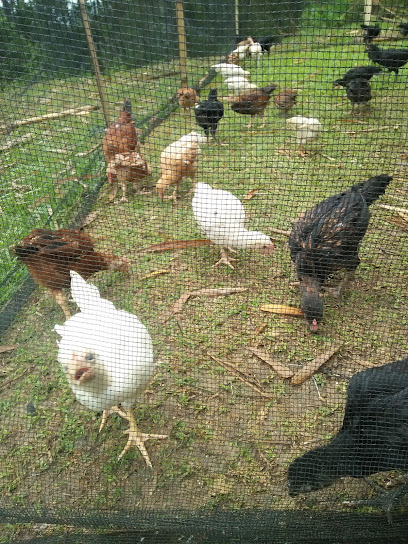
warung tuak balepe' (datang senang pulang tenang)
Experience the tranquility of Warung Tuak Balepe, a charming bar in North Toraja where local flavors and serene surroundings meet.
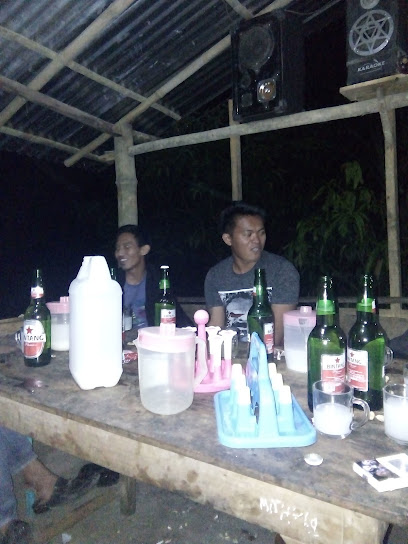
Masagena cafe
Discover the essence of Tana Toraja at Masagena Cafe, where local flavors meet a warm, inviting atmosphere.
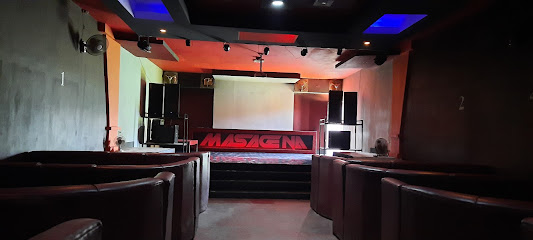
Rumah Bandik
Experience local flavors and warm hospitality at Rumah Bandik, a hidden gem bar in the heart of Tana Toraja, South Sulawesi.
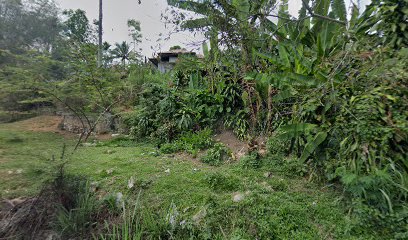
Tree Bar Lounge Misiliana
Experience the vibrant atmosphere and local flavors at Tree Bar Lounge Misiliana, a perfect retreat in North Toraja Regency.
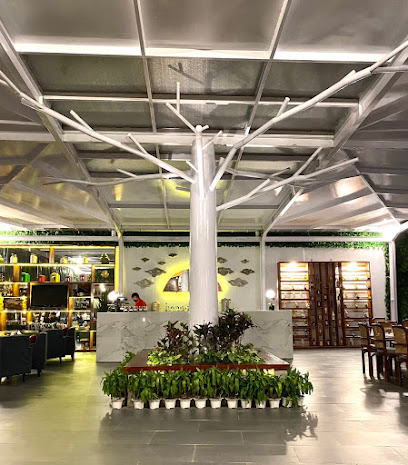
Warung Ballo Balap
Experience the vibrant culture and local flavors at Warung Ballo Balap, a must-visit bar in the heart of Tana Toraja.
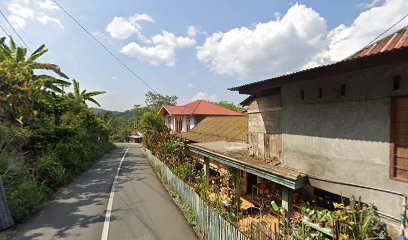
Warung ballo pong tiur
Discover the charm of Tana Toraja at Warung Ballo Pong Tiur, where local culture meets a cozy bar atmosphere.
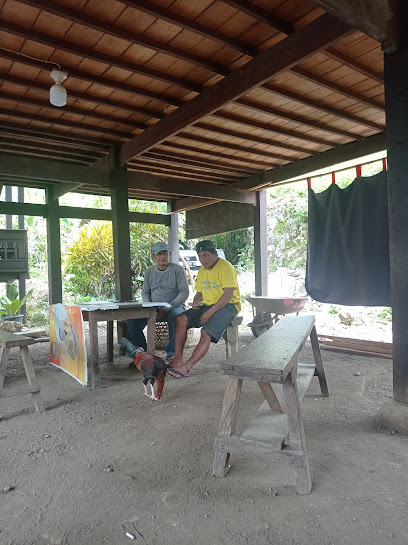
Posko
Discover Posko in Tana Toraja, where dart lovers unite in a lively atmosphere filled with local culture and camaraderie.
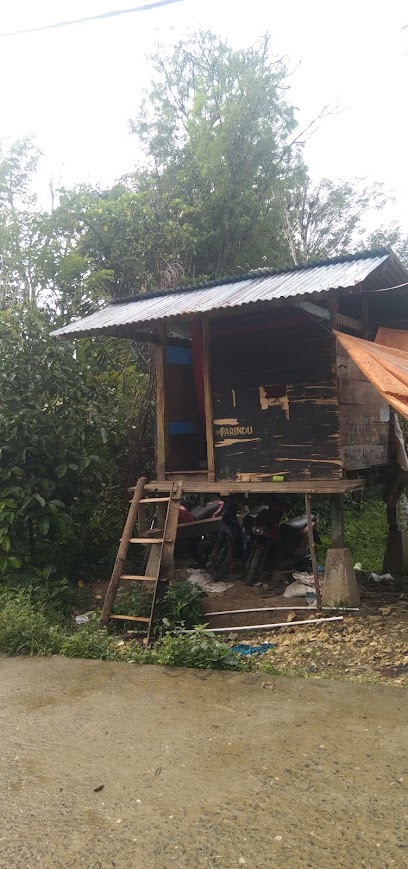
Warung Palm Wine Beres
Discover the vibrant culture of Tana Toraja at Warung Palm Wine Beres, where traditional palm wine meets local hospitality in a cozy setting.
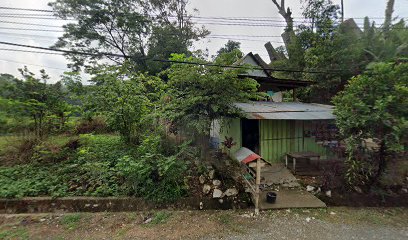
Edelweiss Cafe
Discover the flavors of Tana Toraja at Edelweiss Cafe, where local delicacies meet a vibrant bar atmosphere in a stunning setting.
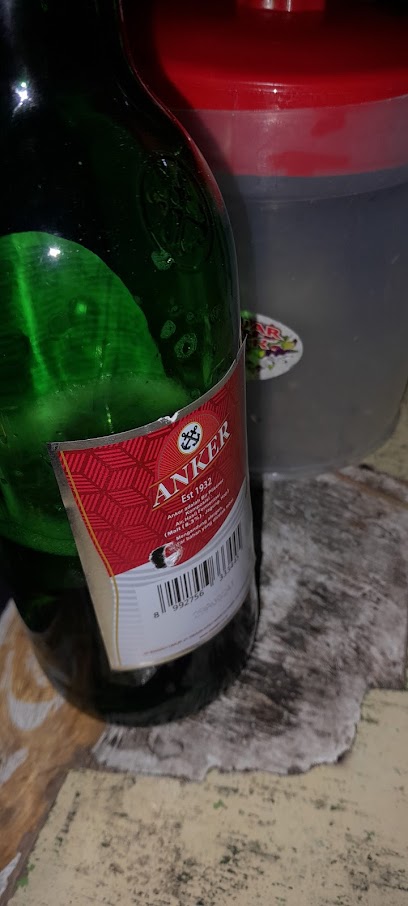
Bililo
Discover the vibrant charm of Bililo, a bar in Tana Toraja Regency offering a unique blend of local culture and refreshing drinks in South Sulawesi.
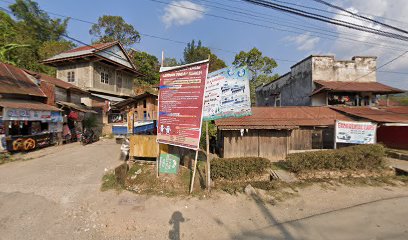
Rokubar
Experience the vibrant nightlife and cultural charm of Tana Toraja at Rokubar, a lively bar offering local drinks and stunning views.
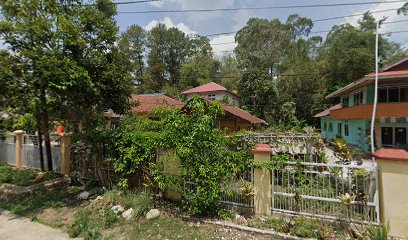
Local Phrases about Tana Toraja
-
- HelloMarending
[mah-ren-ding] - GoodbyeTo mangalai
[toh man-ga-lai] - YesIya
[ee-ya] - NoEnde
[en-deh] - Please/You're welcomeMangkellem
[mang-kel-lem] - Thank youMaturang
[mah-too-rang] - Excuse me/SorryPamali
[pah-mah-lee] - How are you?Apa khabar?
[ah-pah kha-bar] - Fine. And you?Sehat. Kamana?
[seh-hat. ka-ma-nah] - Do you speak English?Kada' basa Inggris?
[ka-dah bah-sah ing-grees] - I don't understandTallu kada' paham
[tahl-lu ka-dah pah-ham]
- HelloMarending
-
- I'd like to see the menu, pleaseBeta mo' mappala menu, tolompong
[be-tah moh mah-pah-lah meh-noo, toh-lom-pong] - I don't eat meatBeta kada' makan daging
[be-tah ka-dah mah-kan dah-ing] - Cheers!Cendrawasih!
[chen-dra-wa-sih] - I would like to pay, pleaseBeta mo' bayar, tolompong
[be-tah moh bah-yar, toh-lom-pong]
- I'd like to see the menu, pleaseBeta mo' mappala menu, tolompong
-
- Help!Tulong!
[too-long] - Go away!Maro!
[mah-roh] - Call the Police!Telepon polisi!
[teh-leh-pon poh-lee-see] - Call a doctor!Telepon dokter!
[teh-leh-pon dohk-tehr] - I'm lostBeta to matung
[be-tah toh mah-toong] - I'm illBeta to sakit
[be-tah toh sah-keet]
- Help!Tulong!
-
- I'd like to buy...Beta mo' beli...
[be-tah moh beh-lee] - I'm just lookingBeta cuma nontong
[be-tah choo-mah non-tong] - How much is it?Berapa harganya?
[beh-rah-pah har-gan-nya] - That's too expensiveItu mahal amat
[ee-too mah-hal ah-maht] - Can you lower the price?Bisa kurangi harganya?
[bee-sah koo-rang-ee har-gan-nya]
- I'd like to buy...Beta mo' beli...
-
- What time is it?Jam berapa sekarang?
[jahm beh-rah-pah se-kah-rang] - It's one o'clockJam satu
[jahm sah-too] - Half past (10)Setengah pukul sepuluh
[seh-teng-ah poo-kool seh-poo-looh] - MorningPagi
[pah-gee] - AfternoonSiang
[see-ahng] - EveningSore
[so-reh] - YesterdayKemarin
[keh-mah-reen] - TodayHari ini
[hah-ree ee-nee] - TomorrowBesok
[beh-sohk] - 1Satu
[sah-too] - 2Dua
[doo-ah] - 3Tiga
[tee-gah] - 4Empat
[em-paht] - 5Lima
[lee-mah] - 6Enam
[eh-nahm] - 7Tujuh
[too-joo] - 8Delapan
[deh-lah-pahn] - 9Sembilan
[sem-bee-lahn] - 10Sepuluh
[seh-poo-looh]
- What time is it?Jam berapa sekarang?
-
- Where's a/the...?Di mana ada...
[dee mah-nah ah-dah] - What's the address?Apa alamatnya?
[ah-pah ah-lah-mat-nya] - Can you show me (on the map)?Bisa tunjukkan saya (pada peta)?
[bee-sah toon-jook-kahn sah-yah (pah-dah peh-tah)] - When's the next (bus)?Kapan yang berikutnya (bis)?
[kah-pahn yang beh-roo-keet-nyah (bees)] - A ticket (to ....)Tiket (ke ....)
[tee-keht (keh ....)]
- Where's a/the...?Di mana ada...
History of Tana Toraja
-
Tana Toraja, located in South Sulawesi, Indonesia, has a rich history dating back to ancient times. The Toraja people are believed to have settled in the region over 3,000 years ago, migrating from Indochina and southern China. Evidence of early settlements can still be seen in the traditional tongkonan houses, which are characterized by their distinctive boat-shaped roofs.
-
In the early 20th century, Tana Toraja came under Dutch colonial rule. The Dutch presence brought significant changes to the region, including the introduction of Christianity. The Dutch missionaries played a pivotal role in converting many Torajans from their indigenous animist beliefs to Christianity, a legacy that continues to influence the region's cultural and religious practices today.
-
During World War II, Tana Toraja, like much of Indonesia, experienced Japanese occupation. The wartime period was marked by hardship and disruption, but it also fostered a sense of unity and resilience among the Torajan people. After the war, Indonesia declared its independence, and Tana Toraja became part of the newly formed Republic of Indonesia.
-
One of the most distinctive aspects of Torajan culture is their elaborate funeral ceremonies. These rites, known as 'Rambu Solo', can last for several days and involve intricate rituals, including the sacrifice of water buffalo. Funerals are not just a time of mourning but also a celebration of life, with the deceased believed to embark on a journey to the afterlife known as 'Puya'.
-
In recognition of its unique cultural heritage, Tana Toraja was proposed for inclusion in the UNESCO World Heritage list. The region's traditional architecture, burial sites, and rituals are considered invaluable cultural assets. This recognition has helped to preserve Toraja's cultural practices and attract tourists from all over the world.
-
Today, Tana Toraja is a vibrant region that successfully blends its ancient traditions with modern influences. The local economy is supported by agriculture, tourism, and handicrafts. Visitors to Tana Toraja can explore historical sites, witness traditional ceremonies, and experience the unique way of life that has been carefully preserved over centuries.
Tana Toraja Essentials
-
Tana Toraja is located in the South Sulawesi region of Indonesia. The nearest major airport is Sultan Hasanuddin International Airport in Makassar. From Makassar, you can take a bus or hire a private car to Rantepao, the main town in Tana Toraja. The journey by road typically takes around 8-10 hours depending on traffic and road conditions. There are also daily flights from Makassar to Pongtiku Airport in Tana Toraja, but these flights are less frequent and may be subject to change.
-
Within Tana Toraja, transportation options include local minibuses, known as 'pete-pete,' and motorcycle taxis, known as 'ojek.' Renting a scooter or car can be a convenient option for exploring more remote areas at your own pace. Be aware that road conditions can vary, and driving can be challenging due to the hilly terrain. Guided tours are also available and can be a good way to see the main attractions.
-
The official currency in Indonesia is the Indonesian Rupiah (IDR). Credit cards are accepted in some hotels and larger restaurants, but it is advisable to carry cash, especially when visiting smaller establishments and rural areas. ATMs are available in Rantepao, but it is wise to withdraw sufficient cash before heading to more remote areas to ensure you have enough funds for your trip.
-
Tana Toraja is generally safe for tourists, but like any travel destination, it is important to take standard precautions. Avoid walking alone at night in unfamiliar areas and keep an eye on your belongings in crowded places. Petty theft can occur, so it is best to stay vigilant and aware of your surroundings. There are no specific high-crime areas targeting tourists, but it is always good to be cautious.
-
In case of emergency, dial 112 for immediate assistance. The local police station and medical facilities are available in Rantepao. It is highly recommended to have travel insurance that covers medical emergencies. For minor health issues, there are pharmacies in Rantepao where you can purchase over-the-counter medications. Make sure to carry a copy of your passport and important documents at all times.
-
Fashion: Do dress modestly, especially when visiting traditional villages and religious sites. Avoid wearing revealing clothing. Religion: Do show respect for local customs and traditions. Always ask for permission before taking photos of people or ceremonies. Public Transport: Do be respectful and patient when using local transport. Don't expect Western standards or punctuality. Greetings: Do greet people with a smile and a slight bow. Shaking hands is common, but use both hands to show respect. Eating & Drinking: Do try local delicacies and accept food offerings graciously. Don't refuse hospitality, as it is considered impolite.
-
To experience Tana Toraja like a local, visit the traditional markets where you can buy fresh produce and local crafts. Engage with the locals, as they are often friendly and willing to share stories about their culture and traditions. Don't miss the unique funeral ceremonies, which are an important aspect of Torajan culture. For a special experience, consider staying in a traditional Torajan house, known as a 'tongkonan.'
Trending Landmarks in Tana Toraja
-
Sulawesi
-
Jesus Christ Blessing Statue
-
Lolai - To' Tombi, Negeri di atas awan
-
Lolai Tongkonan Lempe
-
Toraja Misiliana Hotel
-
Objek Wisata Kalimbuang Bori
-
Patung Lakipadada
-
Makale, Tana Toraja, South Sulawesi, Indonesia
-
Highest peak Lolai
-
Hotel Sahid Toraja
-
Kuburan Batu Lemo
-
Tilanga Natural Pool
-
Sa'pak Bayobayo Sangalla Tana Toraja
-
Attractions Ollon
-
Suaya
Nearby Cities to Tana Toraja
-
Things To Do in Balikpapan
-
Things To Do in Manado
-
Things To Do in Bali
-
Things To Do in Dili
-
Things To Do in Ermera
-
Things To Do in Gleno
-
Things To Do in Aileu
-
Things To Do in Surabaya
-
Things To Do in Bobonaro
-
Things To Do in Suai
-
Things To Do in Same
-
Things To Do in Baucau
-
Things To Do in Lospalos
-
Things To Do in Bangar
-
Things To Do in Sandakan










